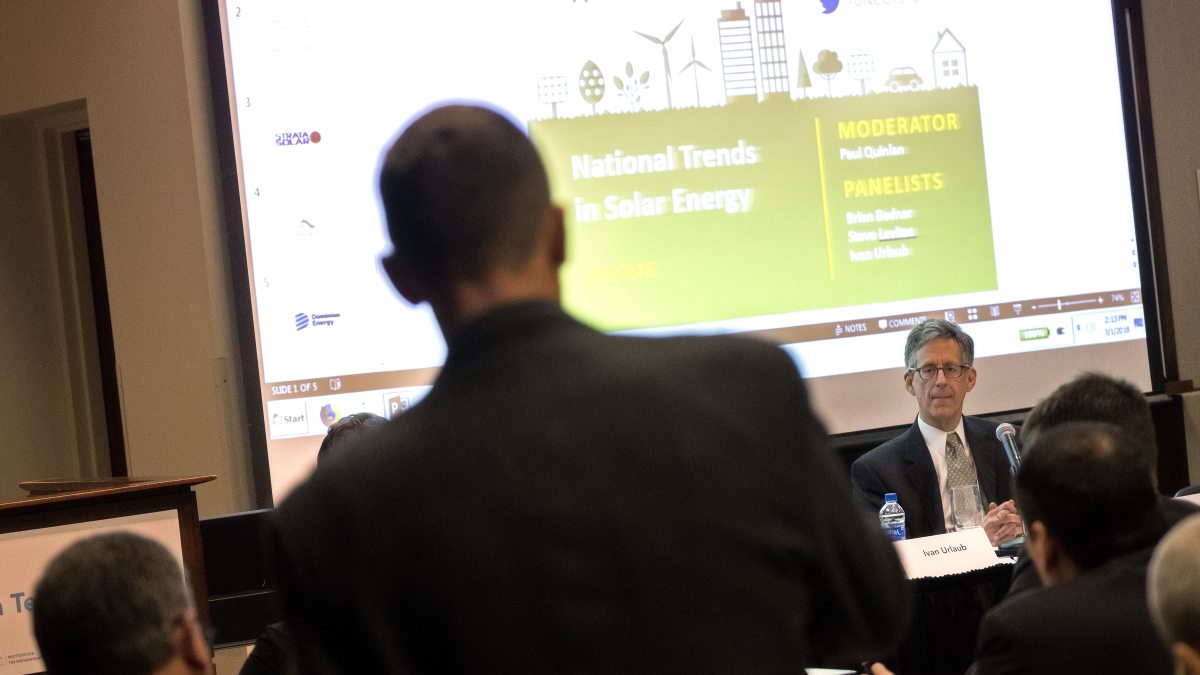Annual UNC Clean Tech Summit urged entrepreneurship and innovation
The annual conference highlighted how the University, Research Triangle Park and the state play a key role in leading the way to a green global economy.

Not so long ago, clean energy was unconventional.
Now it is North Carolina’s future, UNC-Chapel Hill’s Provost and executive vice chancellor Bob Blouin told a group of students, professors and industry leaders from the region and the world.
“North Carolina is poised to be a national hub of clean technology for the country and the world,” Blouin said this week at the fifth-annual Clean Tech Summitt, which brings together academics, government officials, industry professionals and students for panels, workshops, mentoring and networking.
The summit, hosted by the Institute for the Environment and the Center for Sustainable Enterprise at UNC Kenan-Flagler Business School, highlighted how the University, Research Triangle Park and the state play a key role in leading the way to a green global economy.
Held at Carolina’s William and Ida Friday Center, the two-day conference featured panel discussions and workshops on entrepreneurship, clean energy, innovation in agriculture, sustainability and energy storage emphasize the latest innovations, trends and challenges in the clean tech industry.
The summit, Blouin said, is an example of how Carolina is constantly “moving forward for the people that we serve, the citizens of North Carolina, the country and the world.”
The keynote speakers for this year’s summit were Emily Kirsch, the co-founder and CEO of Powerhouse, an intelligent energy incubator and accelerator, and Carl Schramm, a Syracuse University professor and leading authority on entrepreneurship, innovation and economic growth.
In his talk, Schramm discussed who entrepreneurs are and how innovation happens. A lot of people think you should wait around looking for an opportunity, he said.
“That’s not how innovation works. That’s not how great companies are started,” said Schramm.
Ideas creep up and surprise, he said, like his idea to leave the faculty at Johns Hopkins University at 38 to start a company to help hospitals make more effective business and treatment decisions.
“There’s a great trauma,” he said. “Like a lot of entrepreneurs, the idea ambushed me.”
Kirsch sought to inspire future leaders in clean technology to keep moving the field forward.
“Clean energy was the outsider, but that is changing really quickly,” Kirsch said. “Clean energy is becoming the new normal.”




